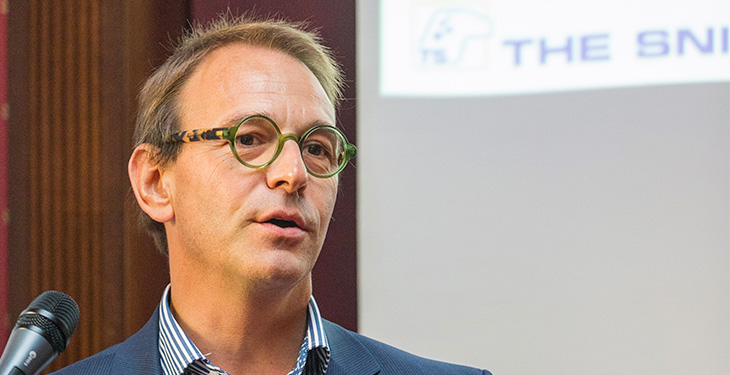The Sniffers is an environmental service provider for the oil and gas industry. ”We are operating worldwide, focusing on Upstream, Midstream and Downstream for O&G activities. We help companies reduce their emissions into the atmosphere, to maintain the integrity of their pipelines and we help them save energy”, said Bart Wauterickx, CEO of The Sniffers, at the Energy Breakfast Club – Oil & Gas – E&P, Transportation and Processing – organized by energynomics.ro.
The company has an office in Bucharest and one in Ploiesti under the umbrella of the mother-company, WTS Energy. „The topic of methane is very important when talking about global warming. If we don’t do anything, our global temperature is going up more than 4 degrees Celsius, which is a dramatic evolution. Reducing CO2 in the atmosphere is important, but methane also has a huge impact on the evolution of global warming. Methane is responsible for 25% of the global warming. And if we reduce methane just in a 45% ratio, that is the equivalent of 1,000 coal plants being closed during the next 20 years”, said Wauterickx.
Methane has the potential of having an 84 times bigger effect than CO2 in the global warming, over the next 20 years.
„In every country we are active, with every customer, we see that methane is a prime focus in the oil and gas industry. Starting 2015, all companies started targeting methane. Very important was the Oil and Gas Climate Initiative – OGCI. Many major companies such as Exxon, Petronas, BP, Shell and Amromco have promised, without any legislation, to reduce their methane emissions to 0.25%, by 2025. At this point, they are roughly at 0.37%, so there’s still a lot to accomplish that target, but, without any legislation out, they demonstrated this initiative,” he adds.
A lot of pressure from shareholders, as well as from investment funds, that do not want to invest in polluting industries, added to set the target out.
In Romania, according to International Energy Agency, the methane emissions reached 1.2% of overall volume produced globally in 2015 from exploration and production activities; that was 185 thousand tons of emissions. „Compared to other countries, this is not best in class, so there are a lot of opportunities to improve.”
Onshore conventional gas is responsible for the most methane emissions in Romania, followed by Downstream gas and onshore conventional oil – the three segments are the largest issuers of methane. „Most of it comes from methane being released directly into the atmosphere.”
According to IEA, there are various technologies that can reduce methane emissions, and half of them can be applied at no net cost, but can reduce methane emissions by 38%. The Sniffers representative presented a methane accounting and management program through which companies are supported to accurately report their emissions. The Sniffers also comes with adapted solutions to reduce these emissions, Wauterickx concluded.
Energy Breakfast Club was organized by energynomics.ro and supported by our partners: Bursa Română de Mărfuri – BRM, Kawasaki Gas Turbine Europe Gmb, Ridgid – Emerson, The Sniffers.
Over 40 representatives from Academia Română, Actemium, Ambasada Franței, AMS Alconex Metrology, Asprofos SA, Atlantis ProCons SRL, BCR, Bioterpena Sustem, Ambasada Bulgariei, Bursa Română de Mărfuri, COS TGV, cursdeguvernare.ro, ELCEN, Elux Rodit, Emerson, Energie F K, EnergoBit, Enpower, FPPG, Grup OMIR, ING, Jereh, Kawasaki, Mitsubishi Corporation, OMV Petrom, Organismul Național de Stanrdardizare – ASRO, Phoenix Contact, Premier Energy, The Sniffers, WTS Energy attended the presentations and participated in discussions.
Participation
This year, energynomics.ro will organize a least 6 Energy Breakfast Club meetings. The schedule and the proposed themes for 2019 are available in the Energy Breakfast Club dedicated page.

